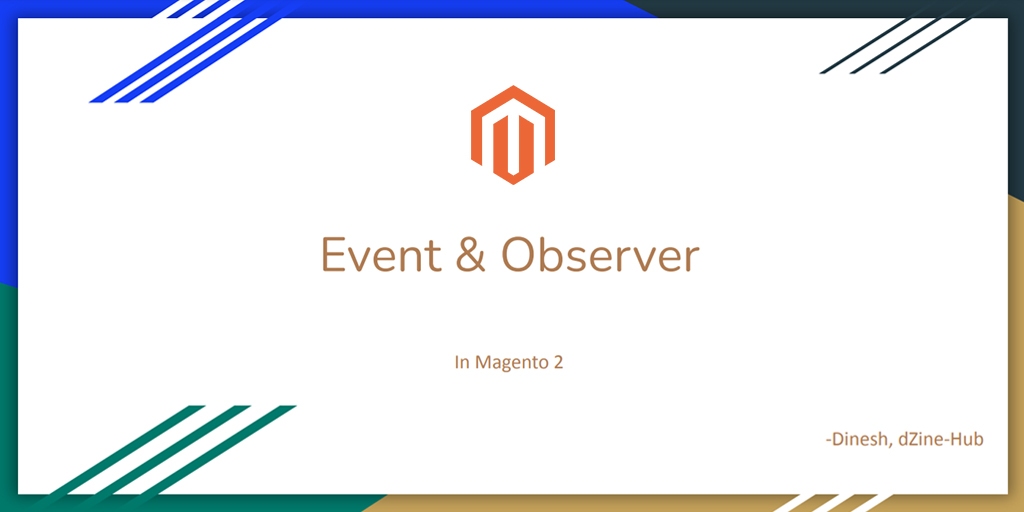
Magento 2 is a savvy eCommerce resource for medium and large-scale online marketplaces to help them remain competitive but streamline expenses. Currently, over 20,000 online retailers use Magento for its robust performance tools, online support options, and detailed scalability to drive their store’s conversion rates.
Dzine-Hub recommends Magento 2 to simplify managing our partners’ online marketplaces’ look, administrative interface, content, and functionality. In particular, it easily integrates with payment services like PayPal and its compatibility with an array of PHP frameworks, databases, web and cloud services, offering a hassle-free experience for your customers. This powerful tool can help your shop reduce abandoned carts and achieve your business goals.
Magento 2 users can expand their experience by taking advantage of the Events and Observers functions. These unique tools allow for running custom code in response to a specific Magento event or the creation of a custom event!
Events:
When a module is triggered, a ripple of actions occurs. Clients can utilize preset Magento events or create ones tailored to their business. How? It’s all about your code! Dispatching an event transmits data to any observes selected to watch that event (i.e., catalog_product_load_after).
Catch and handle any event
dZine-Hub will help your online marketplace by providing a front-end and admin area where you can utilize Magento’s area definition to manage your eCommerce website. You can store the configuration file in one of the three places:
- Under etc/ folder to configure both admin and frontend.
- Under etc/frontend folder for frontend area.
- Under etc/adminhtml folder for admin area.
This is also true of the event configuration file. Here’s the reference on how to create events configuration file for each area:
- Admin area: app/code/Dzinehub/EventObserver/etc/adminhtml/events.xml
- Frontend area: app/code/Dzinehub/EventObserver/etc/frontend/events.xml
- Global area: app/code/Dzinehub/EventObserver/etc/events.xml
Initialize event.xml
<?xml version="1.0"?> <config xmlns:xsi="http://www.w3.org/2001/XMLSchema-instance" xsi:noNamespaceSchemaLocation="urn:magento:framework:Event/etc/events.xsd"> <event name="my_module_event_before"> <observer name="myObserverName" instance="MyCompany\MyModule\Observer\MyObserver" /> </event> <event name="my_module_event_after"> <observer name="myObserverName" instance="MyCompany\MyModule\Observer\AnotherObserver" /> </event> </config>
Observers:
Observers are a unique Magento group influencing general behavior, performance, or change business logic. Observers, also known as interceptors, are executed during an event they have permission to watch as configured by the event manager. They can prove essential when clients need to log anything specific.
How to create an Observer class
<?php
namespace Dzinehub\EventObserver\Observer;
class ChangeDisplayText implements \Magento\Framework\Event\ObserverInterface
{
public function execute(\Magento\Framework\Event\Observer $observer)
{
$displayText = $observer->getData('dz_text');
echo $displayText->getText() . " - Event </br>";
$displayText->setText('Execute event successfully.');
return $this;
}
}
What is the Comparison to Plugins?
It sure can be confusing to draw a line between Plugins and Interceptors for their ability to intercept a function before, during, and after the transaction. Essentially, you can change almost any function with a plugin:
- Before plugins help developers alter input arguments
- After plugins can change the result of a function
- Around plugins can completely alter a function’s logic
Plugins, as opposed to observers, can function anywhere in the system and can either change or override any of Magento’s public methods. They are vital in custom development, especially as Magento patches do not impact them. There is a distinct sort order for plugins that Observers lack. Plugins will only modify public methods rather than how observers also modify private or protected ones. Finally, plugins are more flexible since observers can only be added to previously dispatched events.
Observer shortcomings:
- Since Magento must create a minimum of 3 trigger event objects, observers are slower than plugins
- Less flexibility during introductions of platform-wide features
- An inability to change the objects an observer can influence.
Best times for use
Both plugins and observers can run custom scripts after specific Magento 2 events, or public methods are executed.
Which is the best option for me?
Explore how you will modify Magento core functionality (i.e., will you add further data to order collection object). If so, opt for plugins since there is no need for Events and Observers. Yet, if you require customization after key events are dispatched without altering Magento core functionality, the Event & Observer pattern is a must-have for your marketplace.









Be the first to leave a comment. Don’t be shy.